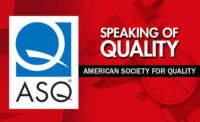Two recent news stories in Asia and Europe have brought complex issues of standards, audits, and supplier relations to the forefront around the world.
In February Takanobu Ito, president and CEO of Honda, resigned after a difficult year for the carmaker. While a company statement commended Ito, CEO since 2009, for allowing Honda “to actively evolve its global manufacturing structure, notably the establishment of automobile plants in Mexico, Brazil, Thailand, Indonesia, India, and China,” the recent quality issues plaguing Honda caused Ito to make his decision to resign. However, Ito remains on the Honda board.
Additional ResourcesDo not let your organization lose sight of quality by thinking quality is passé. Here are three resources that show quality methods, standards, and solid supply chain directives improve organizations and the bottom line. “Rock Solid”This case study examines a mining company’s efforts to improve operational results while reducing inputs or keeping them the same. This multi-year quest resulted in a method called 6TOC (pronounced “six tock”). Read the article here. “When David Has to Satisfy Goliath”In this recorded webinar for the ASQ Customer-Supplier Division, Deborah Hopen discusses concepts of social psychology that affect customer and supplier relationships, particularly when the supplier is a small organization and the customer is comparatively large. Watch this webinar at http://asq.org/cs/116418/web.html?shl=116418. ASQTM TV Standards Channel—New to ASQ TV: Find pertinent answers to your burning ISO 9001:2015 questions on the ASQ Standards Channel here. |
While Honda changes leadership in an attempt to improve quality, Tesco—the multinational retail giant headquartered in England—makes amends for suspect treatment of suppliers. This might not appear as a quality issue at first but, without good customer-supplier relationships, where is your business? Tesco is finding out.
Last year the Groceries Supply Code of Practice, under Christine Tacon’s oversight, opened an investigation amidst allegations that Tesco delays payments to suppliers and makes payments for better positioning of goods. Many companies may consider this practice as “leverage,” but as Paul Erickson points out in “Leverage as a Supply Management Strategy: The Good, the Bad and the Ugly,” a post for his Industry Week blog, “leverage applied inappropriately can lead to unintended negative outcomes.”
In an online editorial for Supply Chain Standard, Malory Davies notes efforts Tesco has recently taken to repair and strengthen supplier relationships. Davies ends her column by saying, “The spotlight is firmly on supplier relationships—and strengthening them is going to be a challenge.” Challenging, indeed.
As the global economy pushes organizations to transform into global businesses, corporations are learning—Honda and Tesco included—no one can afford to sidestep quality practices. Making sure your quality goals are on everyone else’s radar is easier said than done; but in the manufacturing sector, quality teams, methods, practices, standards, audits, and tools can make the difference between a profitable year and a disastrous one.


